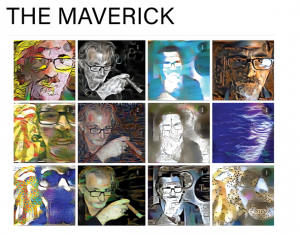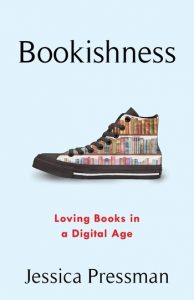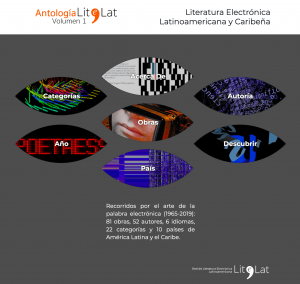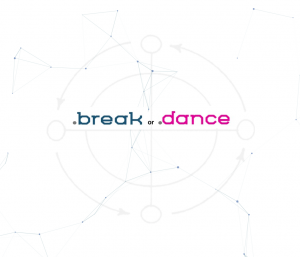The ELO is proud to announce the recipient of a brand new prize: The Maverick Award. This first ever award goes to Talan Memmott.
The Maverick is awarded to an independent spirit: a writer, artist, researcher, programmer, designer, performer, or hybrid creator who does not adhere to a conventional path but creates their own and in so doing makes a singular contribution to the field of electronic literature.

As founder of an alternative learning institution, creator of one of the first online journals of e-lit, author of celebrated works of e-lit, scholar of digital media, and an artist who challenged every medium he worked in, Memmott is a singular figure in the world of electronic literature.
Throughout his career, Talan Memmott has blazed a path in digital literature. He is the author of over 40 electronic literary works, and the novel My Molly De parted (Free Dogma Press). His works, perhaps epitomized by Lexia to Perplexia, have been the subject of acclaim and extensive critical analysis.
Memmott is also the Founder and President of UnderAcademy College, an unaccredited undergraduate, graduate and postgraduate anti-degree institution. UnderAcademy College situates itself as a shadow-academic environment offering alternative courses and anti-degree programs in a variety of subjects. This alternative site of education has offered one-of-a-kind courses, such as How to Read and Write Fake News: Journullism in the Age of Trump, which Memmott co-taught.
Memmott holds an MFA in Literary Arts/Electronic Writing from Brown University and a PhD in Interaction Design/Digital Rhetoric and Poetics from Malmö University.
Memmott has taught and been a researcher in digital art, digital design, electronic writing, new media studies, and digital culture at University of California Santa Cruz; University of Bergen; Blekinge Institute of Technology in Karlskrona, Sweden; California State University Monterey Bay; the Georgia Institute of Technology; University of Colorado Boulder; and the Rhode Island School of Design. He is currently Associate Professor of Creative Digital Media at Winona State University.
He has collaborated on many digital projects, including netprovs, such as, “I Work or the Web,” and the 2018 Congress of Fakes at ELO in Montreal. He has served up computationally generated gastropoetic marvels with Scott Rettberg as part of ELO Cork and ELOrlando.
Memmott has also given extensive service to ELO, having held a position on the Board, including Vice President. He was a co-editor for the Electronic Literature Collection, Volume 2 (ELO). He was also a co-editor of the ELMCIP Anthology of European Electronic Literature.
During the award ceremony ELO Vice President Caitlin Fisher offered an origin story for the award: The idea came up at the wake for Damon Loren Baker for an award recognizing, the artists and scholars, like Damon, “amazing people, as part of the ELO Community, who are not likely to win the other awards because they are on a crazy, brilliant, genius path all their own.”
In the future, the Maverick Award is to be nominated and elected by the Literary Advisory Board. The award: $500 and a bottle of St. Germain. Rettberg explained that the new award would go to someone “who took an unconventional path and who really colored outside of the lines, and of course, Damon is part of this prize, which is a bottle of Saint Germain, Damon’s favorite liqueur.”



